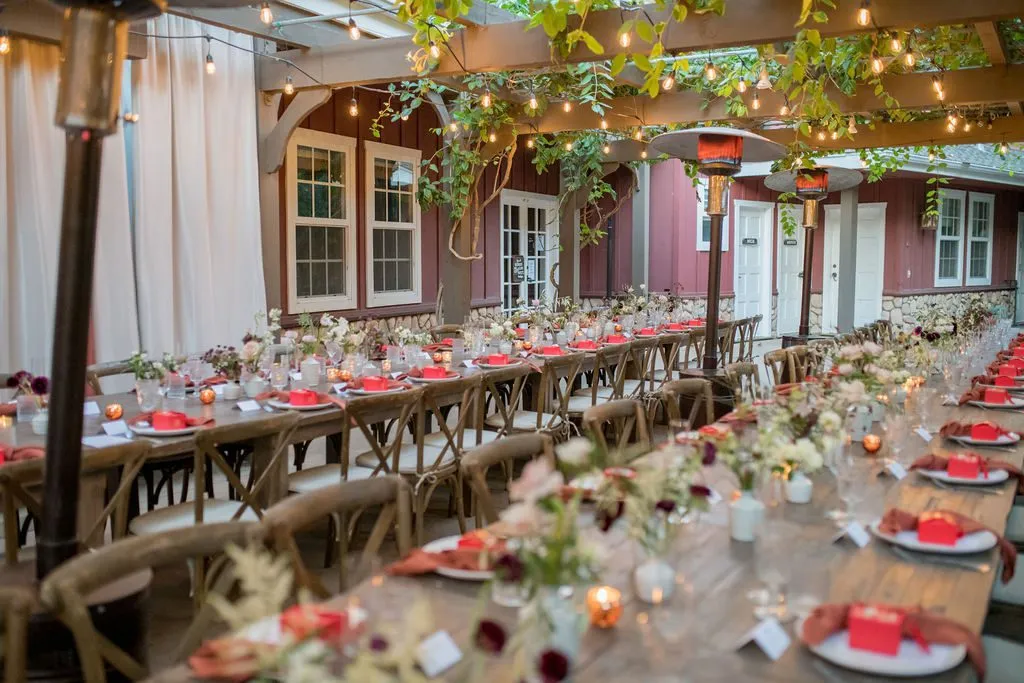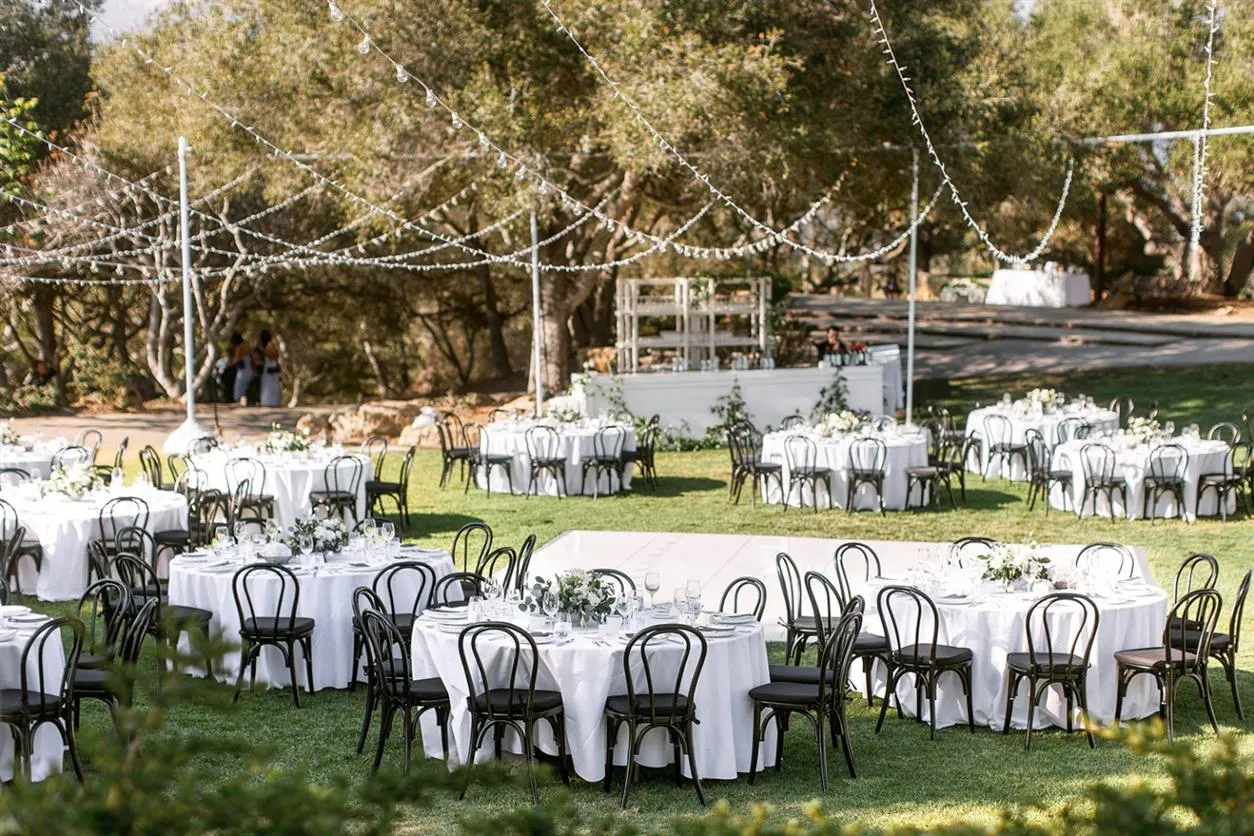Planning a private event can feel overwhelming without a structured approach, but with the right strategy and reliable rental services, it becomes a seamless, stress-free experience. Whether you’re hosting an intimate gathering or a large-scale celebration, success begins with clearly defined goals and a realistic budget. From selecting the perfect venue to choosing trustworthy vendors and coordinating every detail of your rentals, each step plays a vital role in ensuring a smooth event flow. Creating detailed timelines and maintaining open communication with service providers can prevent last-minute surprises. And once the event concludes, conducting a thoughtful post-event wrap-up and gathering feedback will not only help evaluate success but also provide insights for future improvements. This guide walks you through each stage of planning a private event, empowering you to deliver memorable experiences with confidence and ease.
Key Takeaways
- Effective event planning begins with clear goal definition and a realistic budget.
- Choosing the right event type and venue is critical and requires thorough research.
- Detailed timelines, reliable vendor selections, and coordinated rental services ensure smooth execution.
- Post-event wrap-up and feedback collection pave the way for continuous improvement.
How Do You Define Your Event Goals and Set a Realistic Budget?

Establishing event goals and a realistic budget is the first step. Define clear objectives such as the desired atmosphere, target audience engagement, and expected results. Whether celebrating a milestone, fostering corporate networking, or hosting an intimate gathering, these objectives guide funding decisions. Outline potential expenses, from décor and catering to venue fees and rental services, and include hidden costs like taxes and service fees. Using budget templates and tips from previous events can help prevent overspending and ensure every aspect is financially supported.
What Are the Key Objectives for Your Private Event?
Determine the event’s purpose by asking whether it is for celebration, networking, or personal enjoyment. Key objectives may include enhancing guest experience, creating a memorable ambiance, or achieving specific business goals. These objectives assist in choosing themes, décor, and activities that align with your overall vision.
How Do You Create an Effective Event Budget?
An effective budget starts with listing all potential expenses and categorizing them as fixed or variable. Prioritize essential services like venue rental, catering, and equipment, while setting aside funds for enhancements and contingencies. Using detailed budget templates and past event data can improve financial management and ensure each cost is accounted for.
Which Costs Should You Include When Planning With Rental Services?
Plan for both visible and hidden costs when using rental services. Include fees for furniture, tableware, lighting, linens, and specialized items like photo booths and tent setups. Don’t forget extra costs such as delivery, setup, pickup, and potential damage fees. A comprehensive cost checklist helps keep the budget transparent and controlled.
How Do You Choose the Right Event Type and Venue for Your Private Event?
The choice of event type and venue should reflect your event’s purpose. Research various formats and understand their specific requirements. Whether it’s a wedding, corporate event, birthday, or reunion, each has unique needs in terms of capacity, ambiance, and services. Consider venue accessibility, amenities, and overall style to ensure consistency with your event theme.
What Are the Most Common Private Event Types and Their Requirements?
Common event types include weddings, corporate events, birthday parties, and reunions. Weddings often require elegant décor, ample seating, and catering; corporate events need audiovisual equipment and professional settings; while social gatherings may focus on comfortable seating and interactive elements. Knowing these requirements helps narrow down appropriate venue and service choices.
How Do You Find and Select a Suitable Venue?
Begin with a local search focusing on capacity, location, and amenities that suit your event type. Review venue portfolios, customer testimonials, and schedule walkthroughs to evaluate interior design, acoustics, parking, and overall accessibility. This ensures the venue aligns with your goals and budget constraints.
When Should You Book Your Venue and Vendors?
Book your venue and vendors well in advance—ideally six to twelve months before the event—to secure your preferred options. Early bookings allow time for contract negotiations and confirming logistical details, especially during peak seasons.
How Do You Create a Detailed Event Timeline and Checklist?

A detailed timeline and checklist keep your planning organized. Outline tasks from the initial planning phase to post-event wrap-up with clear deadlines and assigned responsibilities. Breaking down the process into pre-event, on-site, and post-event phases ensures that no critical task is overlooked.
What Are the Essential Steps to Include in Your Event Timeline?
Include steps such as setting dates, confirming vendors, issuing invitations, and conducting final walkthroughs. Scheduling these tasks with clear deadlines helps maintain momentum and coordination throughout the planning process.
How Can You Use Checklists to Manage Event Planning Efficiently?
Checklists serve as a systematic tool to track every task, from venue booking to vendor coordination and rental setups. Downloadable templates and detailed lists improve task delegation and ensure every team member is aligned with the event plan.
How Do You Coordinate Rental Deliveries and Setup Times?
Integrate rental service schedules with your event timeline by confirming delivery and setup times in advance. Include buffer periods for unexpected delays to ensure a smooth installation of all rental equipment, reducing last-minute challenges.
How Do You Select and Book Reliable Vendors for Your Private Event?
Selecting reliable vendors is critical. Establish criteria based on past performance, reviews, and compatibility with your event objectives. Research vendors thoroughly, interview them, and confirm their services early to ensure they complement your rental equipment and overall event design.
What Criteria Should You Use to Choose Caterers, Photographers, and DJs?
When evaluating vendors like caterers, photographers, and DJs, consider their experience, portfolio, client testimonials, and responsiveness. Assess if they offer customizable packages and can adjust to last-minute changes while being familiar with your venue.
How Do Rental Services Complement Vendor Coordination?
Rental companies provide essential items such as furniture, lighting, and décor that enhance the services provided by other vendors. Coordinated planning between rental services and vendors ensures that every detail from aesthetics to functionality is seamlessly integrated.
How Far in Advance Should You Confirm Vendor Bookings?
Confirm vendor bookings at least six to twelve months in advance to lock in availability and favorable rates. Early confirmations allow time for any necessary adjustments and coordination with rental services.
What Rental Equipment Do You Need and How Do You Plan Your Event Layout?
Identify necessary rental equipment by listing items such as tables, chairs, linens, audiovisual gear, and lighting solutions. Evaluate your venue’s space and design to determine optimal seating arrangements and equipment placement that maximize guest comfort and event functionality.
Which Rental Items Are Essential for Different Event Types?
Essential rental items vary by event: weddings may need elegant furniture and ambient lighting; corporate events might require quality projectors and conference tables; while social gatherings could emphasize comfortable seating and interactive elements like photo booths. Define these items clearly to align with your event vision.
How Do You Design an Effective Event Layout Using Rental Equipment?
Draft a layout that balances focal points with guest flow by mapping seating, dining, dancing, and presentation areas. Utilize planning tools or templates to visualize the layout, ensuring all rental equipment is logically arranged for comfort and efficiency.
How Do You Customize Rental Packages to Fit Your Event Style and Budget?
Negotiate with rental providers to create flexible packages that meet your event’s style and budget. Discuss options that allow adjustments in equipment selection and delivery times, ensuring you receive the quality and quantity of rentals needed without overspending.
How Do You Manage Event Day Logistics and on-Site Coordination?

Effective on-site management involves clear coordination plans with timelines, vendor checklists, and communication protocols. An experienced event manager should oversee vendor setups, rental deliveries, and guest services. Real-time management minimizes issues and ensures swift resolution of any problems.
What Are the Best Practices for Coordinating Vendors and Rental Deliveries?
Map out detailed schedules for every vendor and rental provider, coordinate arrival times, and confirm logistics with centralized communication tools. A dedicated coordinator can ensure that setups happen smoothly and on schedule.
How Do You Handle Unexpected Issues During the Event?
Have a contingency plan ready for unexpected delays, equipment malfunctions, or catering problems. Stay calm, delegate tasks among support staff, and keep backup options in place to manage any issues quickly without compromising the event experience.
How Can on-Site Support Enhance Your Event Experience?
On-site support from professional coordinators and rental representatives ensures that delivery, setup, and guest logistics run smoothly. This dedicated support minimizes the planner’s burden, allowing guests to enjoy a stress-free event.
How Do You Conduct Post-Event Wrap-Up and Gather Feedback?
After the event, hold debriefing sessions with vendors, guests, and your team. Evaluate what worked and what didn’t, and use surveys or interviews to gather feedback. This post-event analysis is essential for refining future planning strategies and strengthening vendor relationships.
What Are the Key Steps in Post-Event Evaluation?
Review the event timeline, budget adherence, and guest feedback. Document successes and challenges, conduct one-on-one vendor reviews, and compile reports to identify strengths and areas for improvement in future events.
How Do You Thank Vendors and Rental Providers Professionally?
Show appreciation by sending personalized thank-you messages, including vendors in debrief meetings, and providing testimonials or referrals. This recognition fosters loyalty and opens the door to future collaborations.
How Can Feedback Improve Future Event Planning?
Analyze feedback data to adjust budgets, vendor selection, and timelines. Incorporating lessons learned helps streamline future planning and ensures events are continually more efficient and better tailored to guest expectations.
Frequently Asked Questions
Q: How can I ensure my event stays on budget?
A: Start with a clear budget plan that includes all expenses and hidden costs, using templates for accurate tracking.
Q: What key factors should I consider when selecting a venue?
A: Consider capacity, amenities, accessibility, and how well the venue’s style aligns with your event theme.
Q: How early should I confirm vendor and rental bookings?
A: Secure bookings at least 6 to 12 months in advance to ensure availability and favorable rates.
Q: What is the best way to manage event day logistics?
A: Utilize a detailed timeline, appoint a dedicated coordinator, and maintain real-time communication among all parties.
Q: How do I incorporate feedback for planning future events?
A: Analyze post-event evaluations, gather insights through surveys, and adjust your planning process accordingly.
Final Thoughts
Planning a private event with rental services requires clear objectives, a realistic budget, and well-coordinated scheduling. Selecting the right venue and reliable vendors ensures a smooth, memorable event experience. With proactive on-site management and thorough post-event evaluation, planners can continuously improve, delivering stress-free events that perfectly align with their vision and budget.






